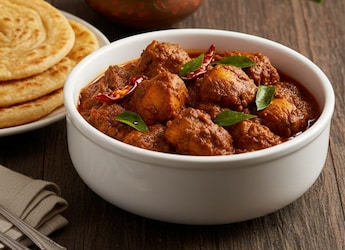Ghevar, the delightful Rajasthani sweet, takes centre stage during special occasions like Hariyali Teej. As the Sawan month arrives, this intricate treat graces local sweet shops in its various forms, from the classic Ghevar to the decadent Malai Ghevar. Hariyali Teej sparks a surge in demand for this sweet delight. This festival holds significance, particularly for married women observing fasts for their husbands' well-being and preparing a spread of delectable dishes. From puris and sabzis to kachoris, ladoos, kheer, and halwa - the menu is mouthwatering. But let's focus on Ghevar. Sometimes, our attempts to make it at home fall short due to some common errors. Don't worry, we're here to help you avoid these missteps and guide you toward Ghevar success. Keep reading for the tips:
Also Read: 5 Tricks To Make Your Cheela The Superfood You Didn't Know
Achieving the Right Texture:
Getting the batter consistency right is crucial. Imagine Goldilocks - not too thick, not too thin, just right! A batter that's too thick results in a heavy Ghevar, and if it's too thin, the shape might suffer. Achieving the ideal batter consistency is the foundation of perfect Ghevar.
Gentle Blending:
Be mindful when mixing your batter. Overmixing is a pitfall to avoid. Too much mixing leads to a thick batter, affecting the end result. Keep your mixing gentle and airy - your Ghevar will thank you for it.
Cooling Technique:
In the art of Ghevar-making, water temperature matters. While you might normally opt for lukewarm water for the batter, Ghevar requires cold water. Why? Ghevar absorbs oil during frying. Using cold water ensures a crispy outcome.
The Rest After Frying
Give your Ghevar the rest it deserves after frying. This step is crucial. Skipping it might lead to issues when the Ghevar meets the sugar syrup. Allow excess ghee to drain away by placing the Ghevar on a plate or a net.
Correct sugar-water ratio
Sugar syrup is the soul of Ghevar. For the perfect syrup, balance sugar and water quantities. If you use one cup of sugar, use half a cup of water. Heat until they blend seamlessly. Aim for a one-string consistency - not too thick, not too thin. Your Ghevar deserves flawless sugar syrup.
Also Read: Craving Chaat? Meet Bhakarwadi Chaat: The Quick And Tasty Twist You Need
So, for those aspiring to master the art of Ghevar-making, now you have the tools for success this Hariyali Teej. Sidestep these common pitfalls, pay attention to the batter, practice gentle mixing, embrace cold water, allow your Ghevar to rest, and perfect that sugar syrup. Your Ghevar masterpiece is within reach - get ready to shine!
